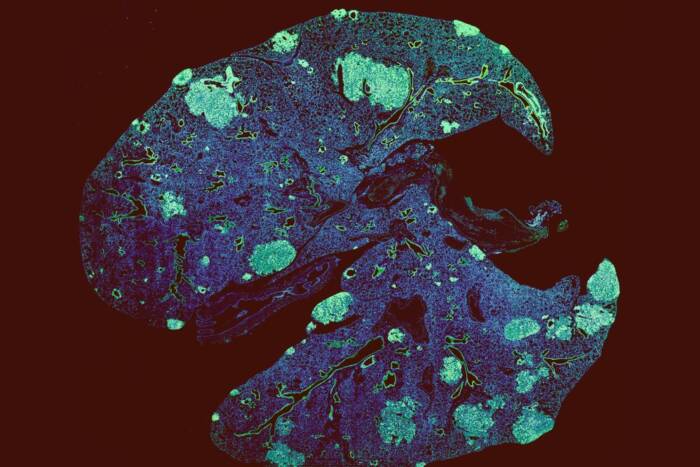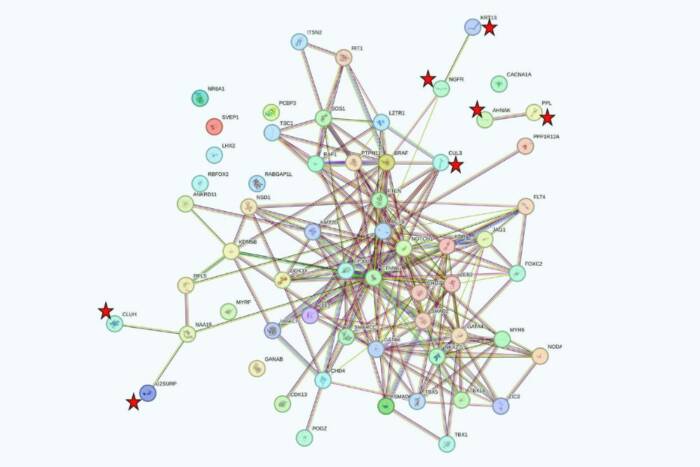Jeffrey M. Friedman and Leslie B. Vosshall named 2014 AAAS Fellows
Rockefeller University scientists Jeffrey M. Friedman and Leslie B. Vosshall have been elected fellows of the American Association for the Advancement of Science (AAAS). Election as a fellow is an honor bestowed upon AAAS members by their peers for scientifically or socially distinguished efforts to advance science or its applications.
Friedman and Vosshall are among 401 members who have been awarded this honor this year. The new fellows will be presented with an official certificate and a gold and blue rosette pin, representing science and engineering, at the 2015 AAAS Annual Meeting in San Jose, California, on February 14.

Jeffrey M. Friedman (top) and Leslie B. Vosshall (bottom)
Friedman and Vosshall are part of the AAAS section on biomedical sciences.
Friedman, who is the Marilyn M. Simpson Professor and head of the Laboratory of Molecular Genetics and a Howard Hughes Medical Institute investigator, was elected in recognition of distinguished contributions to the field of genetics, particularly for the discovery and biological characterization of leptin.
In a landmark paper published in 1994 in the journal Nature, Friedman and his colleagues identified a gene in mice and humans called obese (ob) that codes for a hormone he later named leptin. They showed that leptin is a hormonal signal made by the body’s fat cells that regulates food intake and energy expenditure. Leptin has powerful effects on reproduction, metabolism, other endocrine systems and even immune function.
Friedman’s lab has shown that high leptin levels are associated with resistance to leptin and has provided evidence that suggests that animals destined to be obese increase their production of leptin to satisfy a higher set point for weight. These observations have reframed views on the pathogenesis of obesity and suggested that the development of approaches to improve leptin response in resistant individuals could provide new treatments for obesity.
Friedman received his Ph.D. from Rockefeller and was appointed to the faculty in 1986. He has been an investigator at the Howard Hughes Medical Institute since 1986. A member of the National Academy of Sciences and its Institute of Medicine, as well as the American Academy of Arts and Sciences, Friedman’s recent honors include the 2005 Gairdner Foundation International Award, the 2005 Passano Award, the 2009 Shaw Prize in Life Sciences, and the 2010 Albert Lasker Award for Basic Medical Research.
Vosshall, who is the Robin Chemers Neustein Professor, head of the Laboratory of Neurogenetics and Behavior and a Howard Hughes Medical Institute investigator, was elected in recognition of her contributions to the field of biological sciences, particularly on the molecular basis of insect olfaction.
The Vosshall lab identified the genes that mediate odor and carbon dioxide perception in insects. They found that insects have evolved a set of smell receptors unlike those found in other animals and humans. One member of the odorant gene family, Orco, is of particular interest, as it is unique in being expressed in nearly all olfactory neurons and is highly conserved across insect evolution. Vosshall’s lab has shown that Orco functions as a coreceptor, working in tandem with odorant receptors in the dendrites of olfactory neurons, and has pinpointed this protein as a potential target for chemical inhibitors, which may help fight mosquito-transmitted infectious diseases.
Vosshall received her Ph.D. from Rockefeller in 1993, conducted postdoctoral training at Columbia University, and returned to Rockefeller as assistant professor in 2000. She has been a Howard Hughes Medical Institute investigator since 2008.
Vosshall received the 2002 Presidential Early Career Award for Scientists and Engineers, the 2005 New York City Mayor’s Young Investigator Award for Excellence in Science and Technology and the 2007 Blavatnik Award for Young Scientists.
The American Association for the Advancement of Science (AAAS) is the world’s largest general scientific society, and publisher of the journal Science as well as Science Translational Medicine and Science Signaling. AAAS was founded in 1848, and includes 254 affiliated societies and academies of science, serving 10 million individuals. The tradition of electing AAAS fellows began in 1874.


